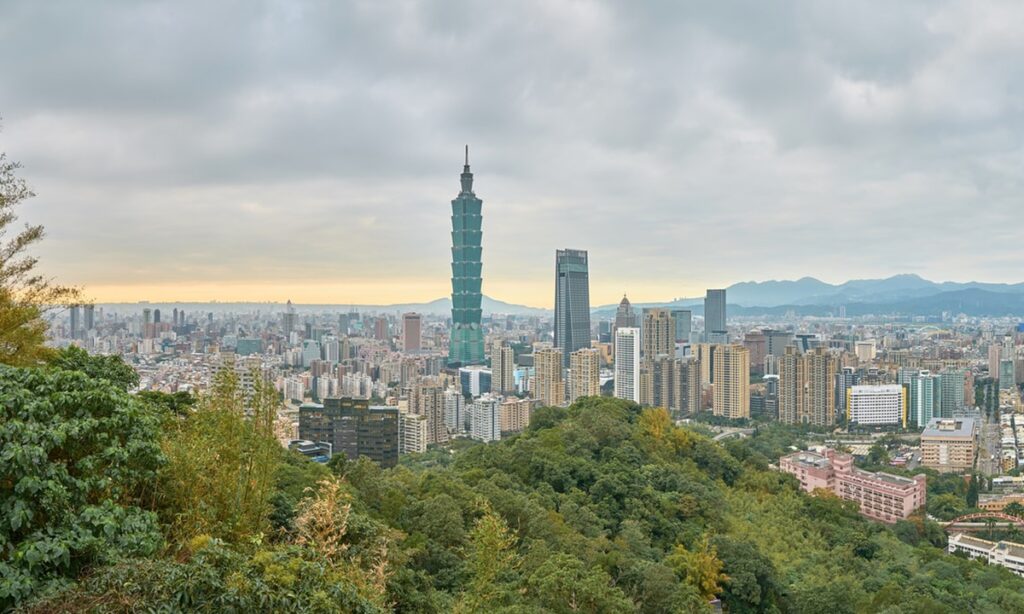An “investigative delegation” dispatched by Taiwan’s Democratic Progressive Party (DPP) authority landed in Japan on Wednesday night, kicking off a journey to look into details of the planned discharge of nuclear-contaminated wastewater from the Fukushima nuclear power plant into the Pacific.
However, instead of a comprehensive and objective assessment on the safety of releasing contaminated wastewater to the ocean, the DPP authority is only interested in promoting food imports from the nuclear disaster-affected areas in Japan, and the delegation is likely to come back with a conclusion that there is no harm in dumping the contaminated water, trying to pacify of the Taiwan residents who opposed DPP’s recent decision of relaxing a ban on food imports from Fukushima nuclear disaster areas, analysts said.
The DPP’s atomic energy council (AEC) on Taiwan island said recently that an eight-member delegation will be in Japan through Sunday, and is expected to visit the disaster-hit Fukushima No.1 nuclear power plant on Friday. But the former head of AEC disclosed that the actual working time in Japan is only about one and a half days.
DPP’s delegation came after it was rejected by the International Atomic Energy Agency (IAEA) for an on-site review in February.
The Global Times learned from a source that the DPP had hoped to get a seat on the IAEA delegation but failed. So they resorted to having a video call with Japan’s external affair authority to discuss the waste water discharge, but there was little effective information from the virtual meeting.
The source added that Japan initially did not agree with DPP’s request of sending a delegation, nor did it provide an assessment on “Fukushima nuclear contaminated food” to be exported to Taiwan.
Several studies have pointed to the potential of serious impacts on countries around the Pacific Ocean if the Fukushima nuclear wastewater is dumped into the sea. Many countries in the region have expressed strong opposition and criticism to Japan, a position which, however, was carefully avoided by the DPP authority on Taiwan island.
Analysts said instead of the IAEA’s plan to conduct a comprehensive assessment of safety, the DPP is trying to fool the island’s people with an “expert review” that will come back with a conclusion that the discharge of contaminated wastewater from Fukushima is harmless, or not that serious.
Zhang Wensheng, deputy dean of the Taiwan Research Institute at Xiamen University, told the Global Times on Thursday that sending a delegation to Japan is DPP’s trick to find grounds for allowing “nuclear food” from Japan and erase concerns and opposition voices among Taiwan residents.
The decision came shortly after fish caught off Fukushima prefecture in late January were found to contain 1,400 becquerels per kilogram of radioactive cesium, 14 times the standard level of 100 becquerels per kilogram. Analysts pointed out that the DPP’s decision is only a political bargaining chip for enhancing relations with Japan.
“They cannot be trusted to use their own research to justify their decisions,” Zhang said.
Taiwan’s ACE has set up an information zone concerning the “Fukushima nuclear disaster tritium wastewater,” but made no mention of the possible serious harm to human body and marine ecology brought by dumping nuclear wastewater into the sea. The agency even claimed in a promotional poster that “there is no experimental data showing that tritium can cause human cancer.”
Li Kui-bin, a politician from the Kuomintang party in Taiwan, said that the DPP is using Taiwan people’s tax money to defend the Japanese government, “by using suggestive words to lead the public to mistakenly believe that the Fukushima nuclear wastewater was harmless.”
Ideology is the starting point of DPP’s decision, which aims to win support from Japan and US for “Taiwan secession” through continuous concessions and sacrifice of the interests of Taiwan residents, Zhang said.
DPP’s tricks can only win politicians’ oral support and show illusion of improvement of relations because Japan puts its own interests first in its policy.
Japan’s words and deeds on the Taiwan question are also constrained by China-Japan relations and its own national strength, Zhang said.
Taiwan Photo: Unsplash



